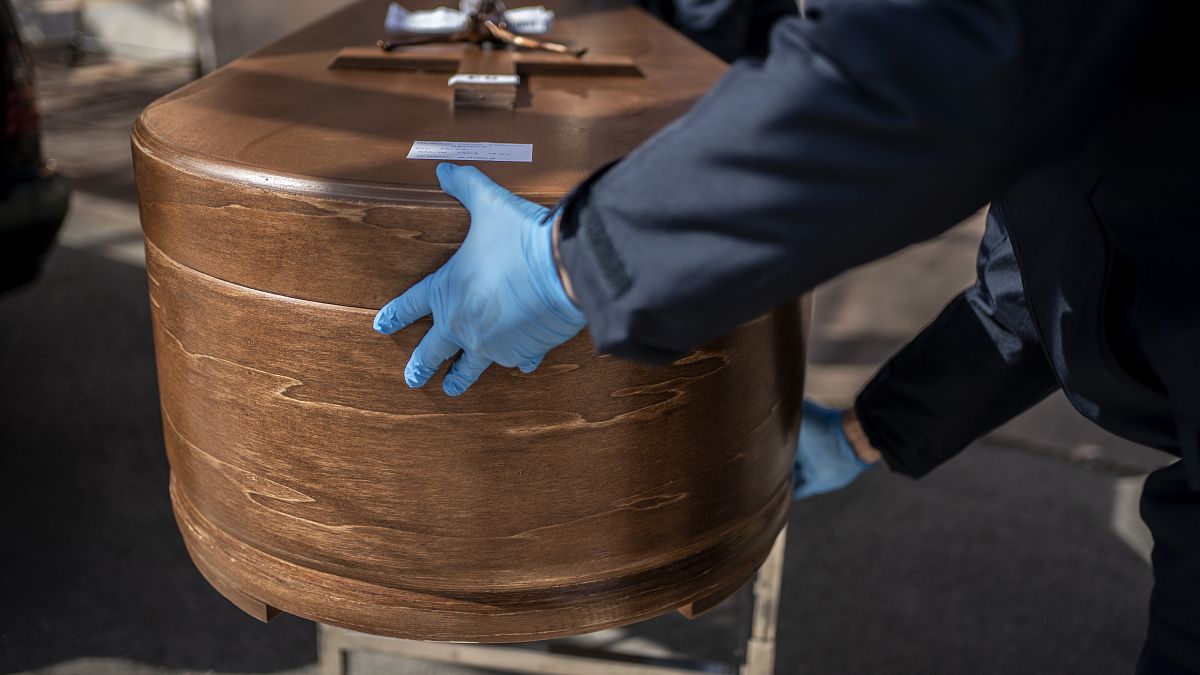Relatives of COVID-19 patients in Spain are barred from visiting them in hospital. The ban extends to funerals as well.
Spain's ban on funerals and social distancing is compounding the pain of losing loved ones to COVID-19.
Relatives of infected patients are not allowed to visit meaning — apart from medical staff — many often die alone.
And Spain's mid-March lockdown banned large gatherings, effectively putting an end to people being able to attend a funeral service.
Today, Madrid officially prohibited them and said no more than three people can be involved in any burial.
It means the pandemic has dehumanised one of life's hardest trials: mourning loved ones. Coffins are now being carried by strangers in full protective suits.
COVID-19 has killed more than 7,000 people in Spain. Its daily death toll is running at 800, higher than Italy, the worst-hit country.
In the capital Madrid, which has been severely affected, morgues have run out of place and local authorities were forced to requisition an ice rink to store the deceased. A second facility is similarly being re-purposed.
'It's been really hard'
Encarni Calvache only leaves her house to bring lunch to her infected sister.
Their father has died and their mother is recovering at a hospital. In total, six members of the family were contaminated.
"Not being able to say goodbye to him physically, not being able to hug my mother who was lying in another hospital room... that's been really hard," she told Euronews.
"It's like staring at the sea and seeing the wave, far, far away. And suddenly, what you saw in the distance is all over you. It's decimated us," she added.
Instead, she sent a farewell letter to her father, which was read to him by nurses. Health workers, already overstretched by the pandemic, have had to step in and replace family members, providing emotional support when needed or helping to set up video chats.
"Health workers are giving a thousand per cent to take care of our relatives, the best they can, to be there where we can't be because of confinement. This is so important, and it gave us a lot of peace of mind," Calvache said.
'Strengthening bonds through technology'
Therapists and health workers are now looking at ways to assist those denied the opportunity to grieve in the times of social distancing.
"What they experience most are impotence and desolation," José Carlos Bermejo, an expert in mourning from the San Camilo Listening Centre, explained to Euronews. Most feel guilty that they can't be there through this difficult time and especially, in the last hours, he said.
To bring families together and give them a chance to grieve together, he has created a digital ceremony, to be played as a replacement to a traditional funeral and which each mourner can listen to from their places of confinement.
Among the questions relatives ask themselves, Bermejo went on are: "How can I be by your side? How can I be there without being actually there because they're at a hospital?"
The digital ceremony helps "strengthens the bond through technology," he said.
